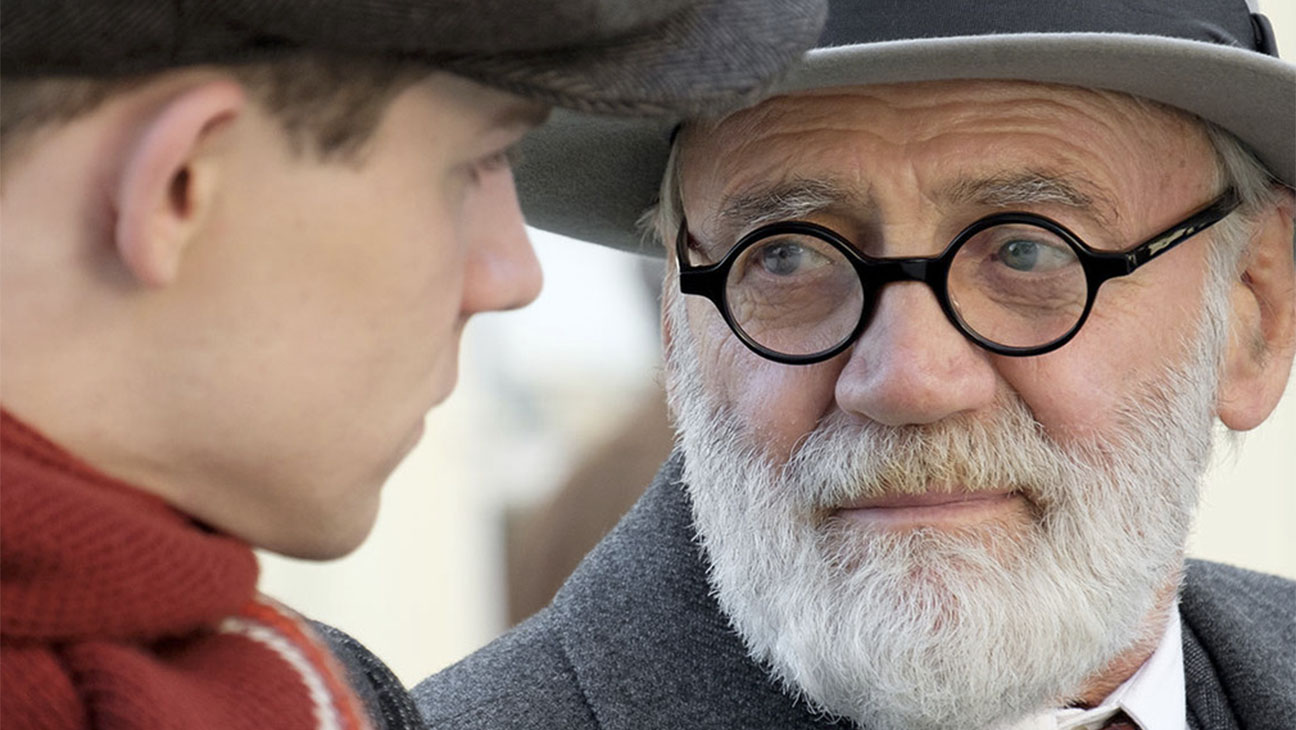THE TOBACCONIST (Der trafikant)
Menemsha Films
Reviewed for Shockya.com & BigAppleReviews.net linked from Rotten Tomatoes by: Harvey Karten
Director: Nickolaus Leytner
Screenwriters: Klaus Richter, Nikolaus Leytner, based on Robert Seethaler’s novel
Cast: Simon Morzé, Bruno Ganz, Johannes Krisch, Emma Drogunova
Screened at: Critics’ link, NYC, 6/29/20
Opens: July10, 2020
“Sometimes a cigar is just a cigar.” That is probably the best-known quote attributed to Dr. Sigmund Freud, meaning that you don’t have to look deeply into everything to understand; that a cigar is not always a symbol of what’s hiding inside every man’s pants. Now immerse yourself into the world of fiction. Think of a 17-year-old boy who confides to Freud that he simply does not understand love. “You don’t have to understand water. Just jump in,” replies the good doctor in Nickolaus Leytner’s period piece taking place in Vienna during the year 1938. Nickolaus Leytner, whose résumé is chock full of TV movies like “Die Stille danach” (how does a family live when its son has murdered five people and himself?), now directs “The Tobacconist,” from the Man Booker Prize-finalist novel of the same name by Robert Seethaler.
The movie is co-written by Klaus Richter, who wrote the screenplay about the rise and fall of actor Ferdinand Marian (who played the title character in the anti-Semitic “The Jew Suss”). “The Tobacconist” is both a coming of age story and a description of Vienna just before and during its occupation by Germany in 1938. While most Austrians after the war protested that they were victims of the occupation, the historical record (and this movie) indicates that many the German-speaking country welcomed the Nazi presence wholeheartedly.
In the film Franz Huchel (Simon Morzé), a 17-year-old boy, is forced by his promiscuous mother Margarete (Regina Fritsch) to leave their village after the middle-aged woman’s lover is electrocuted while swimming during a storm. (The opening scene is a gem.) Arriving there, he is employed by Otto Trsnjek (Johannes Krisch), the owner of a small tobacco shop and probably one of Margarete’s former lovers. Otto is an ardent anti-Nazi who has philosophic views about his main product. As he tells the easily impressed young apprentice, “A bad cigar is like horseshit… and a great cigar is the world.” (Given the state of the world today and in 1930s Europe, I would probably choose the bad cigar.) Otto welcomes Communists and Jews to the dismay of his neighbor the butcher, who, if he had the chance, would probably turn in both the vendor and Dr. Freud (Bruno Ganz in his last role) to the occupation.
The heart of the movie is the unlikely friendship of the young man with Dr. Freud. Though the father of psychoanalysis treats patients who can afford him, he freely gives advice to Franz, in love with an assertive Czech music hall dancer Anezka (Emma Drogunova). Freud’s family urges him to leave Vienna for London, believing rightly that his life would be in danger if he remained.
The personal story involves a young man who might have remained naïve had he stayed in the village of Attersee and how his boss, who lost a leg in World War I, coached him on tobacco and life. The personal alternates with the political as a drama of a city that appears proudly to hang large Nazi flags on a government building turned into a Gestapo headquarters. Among the treasures of the film is a series of Franz’s dreams, all surreal as dreams tend to be, and exquisitely photographed by cinematographer Hermann Dunzendorfer, filming in Germany, Austria and Italy. Aside from the filming, the highlight would have to be the strong performances by Johannes Krisch as the older tobacconist, a humanist who once rejected the business of a man who asked to buy a National Socialist newspaper; of the late Bruno Ganz, unrecognizable as the famous shrink who is both a fount of wisdom and fearful of his future under Nazism; and Simon Morzé as the young title figure, who learns to stand up to the Nazis like the neighboring butcher and to let go of a woman who would be anything but loyal to one mana.
In German with English subtitles.
117 minutes. © 2020 by Harvey Karten, Member, New York Film Critics Online
Story – B+
Acting – A-
Technical – A-
Overall – B+

